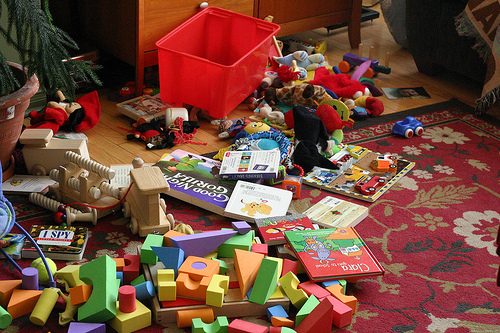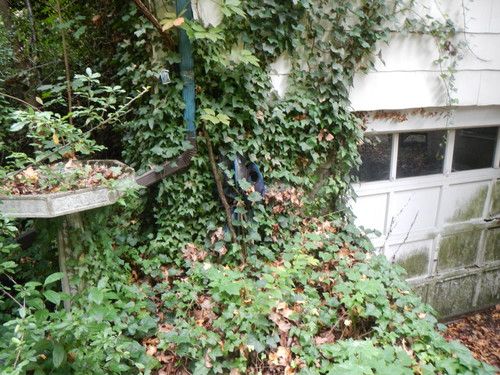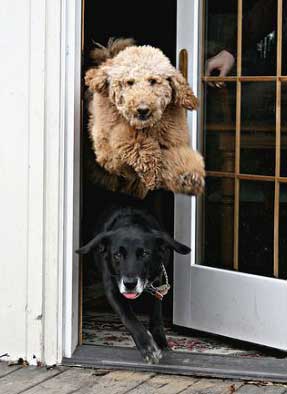One of the steps in the home selling process is having your home inspected by someone the seller has chosen. The Home inspection is important to both the buyer and the seller, but to the seller it represents another hurdle to getting the contracts signed. As an inspector I take people on tours of the homes they are planning on buying and talk them through the inspection process, showing them the good, the bad and the really bad. One of the things that I see on a regular basis is how little many sellers do to prepare for that inspection. Some sellers just assume that there is nothing they can do to alter the outcome of the inspection, that’s where they are wrong. Following a few simple steps like those listed below can change the way an inspection occurs and possibly even shorten the number of items on the inspection report.
1. Clean the House

This sounds so simple yet homeowners often overlook this tactic. Home inspectors are people first and inspectors second. As people, they carry preconceived ideas of how well a home has been maintained. Clean homes say you care and take care of the house.
2. Be on Time Because the Inspector Will Be
Sometimes home inspectors are early. If an inspector makes an appointment with you for 9:00 a.m., have the house ready for inspection at 9:00 a.m. It’s also common for inspectors to start on the exterior of the home, so leave the shades down or drapes drawn until you are dressed. More than one unprepared seller has been “surprised” by a stranger stomping around in the back yard.
3. Leave the Utilities Connected
The home inspector will need to turn on the stove, run the dishwasher, test the furnace and air conditioning, so leave the utilities on, especially if the house is vacant. It’s impossible to check receptacles for grounding and reverse polarity if the power is turned off. Without utilities, the inspector will have to reschedule, which could delay the closing of your transaction and the removal of the buyer’s home inspection contingency.
4. Provide Workspace Around Furnace and Water Heaters
Remove boxes, bookcases, furniture and anything else blocking access to your furnace, air conditioner and water heater. The inspector will need three to four feet of working space to inspect these items.
5. Keep Pilot Lights Ignited
Many home inspectors will refuse to light pilot lights because they are not covered for that type of liability. If your pilot lights are not lit, then important items such as the water heater, gas stove or furnace will not be inspected, and the buyer could delay closing until those inspections are completed.
6. Provide Access to Attic and Garage
The inspector will need to get into your basement and / or attic as well, so keep a path cleared. Move boxes away from the walls. Vacuum spider webs.
7. Leave Keys for Outbuildings & Electrical Boxes
Leave the remote controls for your garage door opener or a key if the garage is unattached to the house. Unlock the covers for your sprinkler system and electrical box. Leave a key for exterior building access.
8. Clear Away Brush from Exterior Inspection Points
Nobody expects you to shovel a tunnel around your home if snow drifts are blocking the foundation but, in the winter, do provide a path around the house. In the summer, cut down dead tree branches and clear brush from the foundation. Move trash cans away from the house.
9. Prepare to be Away for Three Hours Minimum
Often the buyer will accompany the home inspector, and buyers feel uncomfortable asking questions if the owner is present. Try to schedule a time for the inspection when you can be out of the house and take the children with you. Crate your pets if you cannot remove them from the premises.
10. Take Care of Your Pets

Consider removing any dogs in the home and leave a note about any other pets present. Don’t assume that the inspector or buyer will be OK with your dog. Consider taking them with you during the inspection or placing them in a kennel or secured area of the home. If cats or other pets are present, ensure the inspector knows this so they are not let out of the home.
11 Replace Any Burned Out Light bulbs
The inspector won’t know if the bulb is burned out, or if the switch or fixture is bad. A fresh bulb where needed will eliminate this question and help the inspection go smoother.
12. Consider Having a Pre-Listing Inspection
Consider having a pre-listing inspection. If you have further concerns about the condition of the home and the major systems, consider having a pre-listing inspection done. The inspector can point out any repair concerns, providing you with the opportunity to repair items in advance, and further prepare your home for a buyer’s inspection. Oftentimes items uncovered during an inspection, such as mold, could have been remedied before the inspection eliminating a lot of concern and extra back and forth negotiations. Sometimes being able to disclose upfront that the boiler or furnace are old, or you know that the roof is in need of repair means not having to re-visit the issues after the inspection. Sterling Home Inspections can help assist you with Pre-Listing Inspections and perhaps help make the selling process a bit easier.

